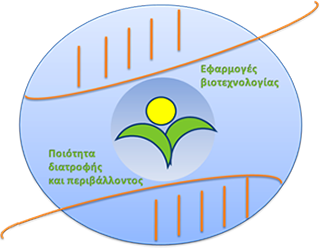Learning outcomes
The course provides the theoretical background for understanding the biochemical dimension of food at the gene and cellular level but also at the level of biological systems, tissues, organs and the whole organism. The postgraduate students examine the properties of nutrients and how, at a biochemical level, the nutrient composition of foods relates to the dietary quality. The postgraduates study the body’s nutrition mechanisms, digestion, absorption and utilization of macro and micronutrients by the human body, and the role of the intestinal microbiome. In addition, the course provides the postgraduates with specialized knowledge in the emerging fields of nutritional genomics and nutritional genetics. Emphasis is placed on the study of the scientific literature by the students so that they are trained in the critical analysis and evaluation of the current aspects and the modern scientific notions concerning the Biochemistry of Nutrition and comprehend the perspectives of their application in modern nutrition. The students are graded on their performance in a three-hour written exam that takes place at the end of the semester.
Outline of course content
- The biochemistry of energy and how food energy is used. Energy requirements-Energy transformations-Metabolic processes.
- Body nutrition mechanisms – Coordination and regulation of digestive processes – The role of the intestinal microbiome. New data in gut microbiome research.
- Carbohydrates, digestion, absorption and metabolism.
- Dietary fiber- Physiological and metabolic effects and recommended dietary fiber allowances.
- Lipids, fatty acids, digestion, absorption, metabolism.
- Cholesterol, eicosanoids, transport and storage.
- Proteins, amino acids, digestion, absorption, metabolism. Assessment of dietary protein quality and recommended dietary intakes.
- Regulatory nutrients – vitamins, micronutrients. Interactions with other nutrients-toxicity-assessment of nutritional status.
- Completion and control of metabolism.
- Nutritional Genomics- Nutritional Genetics Nutritional Epigenetics and perspectives. Applications in personalized nutrition.
